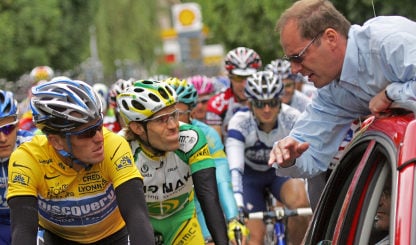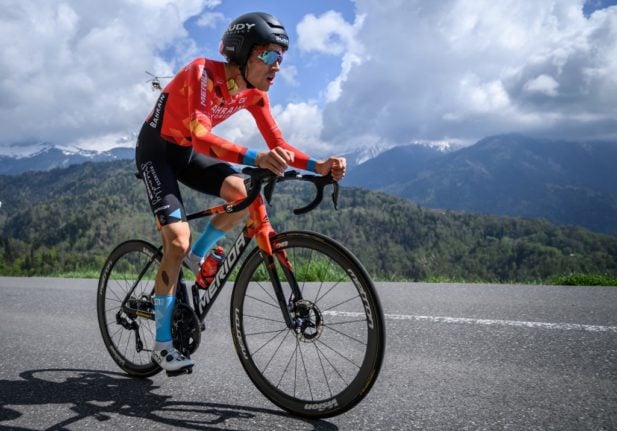Prudhomme said that for this year's edition of Paris-Nice, which starts on March 3, they were keen to secure the services of the French anti-doping agency (AFLD) as well as for other races in France.
"We would like the AFLD to be there and more generally but obviously it won't just be for this year. We need to have a truly independent anti-doping body which has nothing to do with federations and which oversees all disciplines," he added.
"It's difficult to be both judge and jury," said Prudhomme, without mentioning the sport's world governing body the International Cycling Union (UCI), which has been at loggerheads with the World Anti-Doping Agency (WADA) and its US counterpart.
The issue of how to tighten doping controls in the sport has come to a head after US rider Lance Armstrong's admission last month that he took a cocktail of banned drugs to win the Tour de France a record seven times between 1999 and 2005.
The disgraced Texan was banned from the sport for life and stripped of his career wins back to August 1988, severely denting cycling's reputation and casting a cloud over modern-day riders, despite efforts to drastically clean up the sport.
Prudhomme said it was "possible" that WADA could step in to oversee doping control in cycling, which would alter the current arrangement by which the UCI sets policy as well as organizes drug testing.
The AFLD, whose remit extends to all sports in France, has been brought in by the UCI in recent years for international events held in the country, although the world federation has retained control of operations.
Separately, Prudhomme rejected a proposal from the French cycling federation (FFC) to allow national teams to compete in the sport's most prestigious race, which this year holds its 100th edition.
"I'll say it again, we're fond of our sponsored teams," said Prudhomme. "There are now some sponsored teams that resemble national ones. For me, a return to national teams is a bit of an old chestnut. It was great but I'm not convinced that it's a solution for the future."



 Please whitelist us to continue reading.
Please whitelist us to continue reading.
Member comments